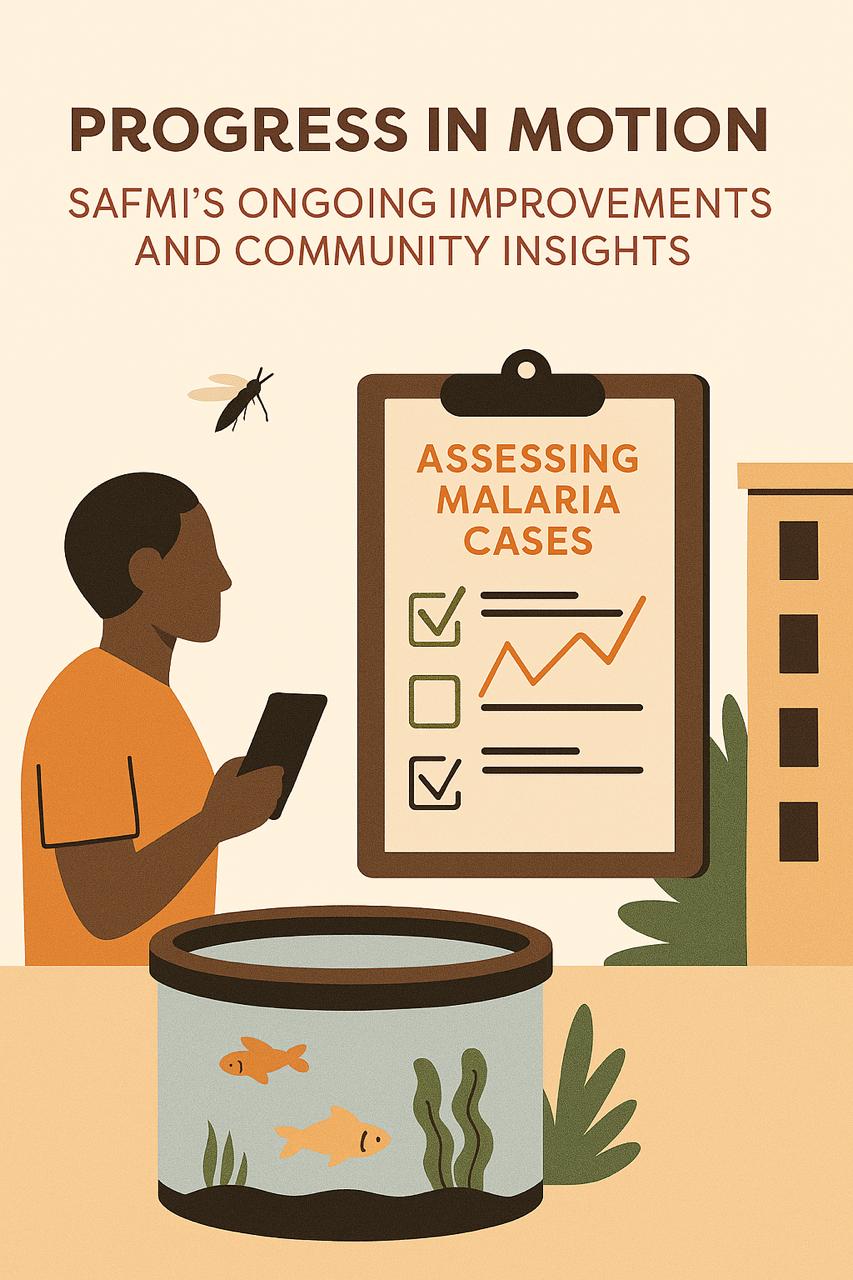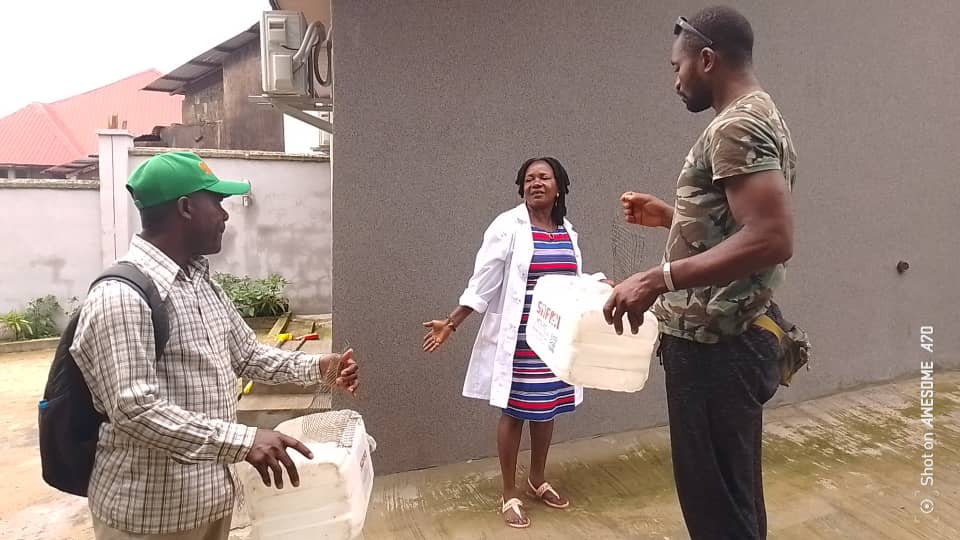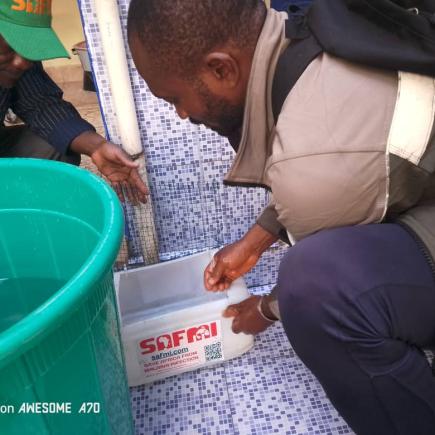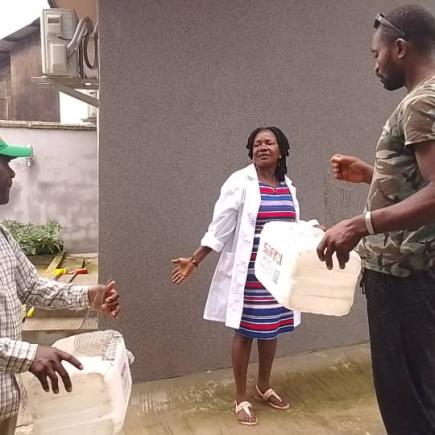At SAFMI, our fight against malaria does not pause for the weather—even when the skies open up and the streets of Freetown become rivers. The rainy season brings serious challenges, and yet our mission must go on.
For our team on the ground, rain means more than getting soaked. It becomes significantly harder to move through the city, with transport delays, muddy footpaths, and flooded roads making fish tank deliveries an everyday test of patience and resilience. But despite the conditions, our staff put on their boots and carry on—because malaria doesn’t stop when it rains.
The weather also affects our fish. Heavy downpours can disturb the delicate balance inside the mosquito-control tanks we have carefully placed across schools, hospitals, and communities. Too much rain can dilute the water, chill the temperature, or even overflow the tanks. That’s why our maintenance team works tirelessly to monitor and adjust tank locations, ensuring they’re kept safe from excessive exposure, while still attracting mosquitoes to lay larvae nearby. From our personal experience and studies, we have also learned that mosquitoes behave differently in the rain. Stagnant water pools increase rapidly, and mosquitoes seek new places to breed. That’s why our strategic placement of tanks becomes even more important during this time. Our team studies mosquito patterns and adjusts tank positioning to target high-risk zones.
Rainy season or not, our work continues with purpose. Because every tank we deliver, every fish we protect, and every mosquito we eliminate brings us closer to a future where malaria is no longer a threat. It’s not easy work, especially during storms—but it’s work worth doing. If you see one of our teams walking through the rain, give them a smile. They are the quiet heroes keeping Sierra Leone safe—one fish at a time.


.png)



